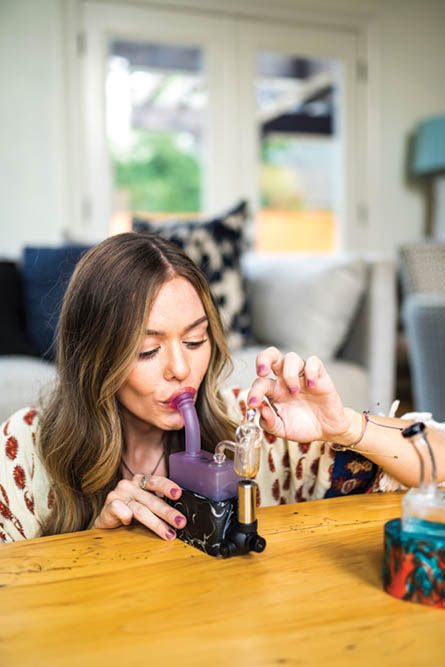In 2014, Missi Santos lived and breathed education, dedicating her time to teaching video production to a small class of ninth graders in Tulsa, Oklahoma. Growing up, she suffered from constant sinus issues, and she eventually underwent a procedure to fix her sinuses. During the surgery, however, her doctors found something else: a brain tumor.
“I tried not to freak out, you know, when you hear the word tumor,” the 39-year-old said.
While it was discovered to be a benign tumor, it was located on her pituitary gland which she was told made it dangerous. Missi went to a neurosurgeon who would continue to monitor the tumor for growth, adopting a “wait and see” method because of the risk associated with operating near its location.
After about four years, symptoms began to show in the form of migraines, hormonal issues and changes to her sight. Her family found a doctor in Phoenix, Arizona who would operate on the tumor after consulting with different doctors for about a year, she said.
“If you wait too long, you’re going to lose your sight,” the doctor told her.
Missi underwent surgery to remove the tumor — but doctors were only able to remove 90% of it. She said if they were to remove the whole tumor, her pituitary gland would need to be removed as well, which would have resulted in lifelong hormonal changes.
During her recovery, she said the medicine she was prescribed was not working to combat the intense pain, and with the doctors exhausting all possible options, she turned to Cannabis. She said her Cannabis journey started when she tried it in college and found it wasn’t her thing. However, when she visited Colorado before her tumor diagnosis, she tried it again to help with a migraine and was surprised at how well it worked.


Cannabis in Oklahoma became medically legal following her surgery; she applied for her medical card and began experimenting with RSO oil and different tinctures. She also said during her recovery, she was taking at least six different prescription medications, and through her Cannabis use, she no longer takes any of them.
She decided not to return to teaching after her recovery due to her newfound love for Cannabis and started working as a budtender in Oklahoma. It was through this passion for Cannabis — and mutual friends on social media — that she met her husband, Rod. She moved to Maryland in 2020 after finishing her recovery, and the two got married not long after and had a son, something her doctors also told her she would not be able to do because of the tumor.
With Rod, she is part of the small team behind Stache Products. She holds a few different positions in the company, but she started with and still works on “everything you see visually.” Pulling from her previous experience in teaching video production, she creates content for Stache’s website and social media pages from home as a full-time job while fulfilling her duties as a mom at the same time.
“We’re down in the basement. I got the lights on while the baby’s upstairs sleeping and we’re recording,” she said. “Being a mom and working full time and owning a business is such a challenge, but I’m grateful for Cannabis because it helps me get through it.”
She said a typical day for her includes taking her son out for a bit and doing preschool activities before starting her work, juggling the two until Rod comes home and watches their son while she finishes her work.
“It’s cool how we can turn it on and off real quickly, but it’s never like 8-5 and it shuts off. It’s always on,” she said. “By the end of the night, we’re all exhausted.”
She added that before she started her own family, she never understood the importance of what family meant, but after starting her own and adopting a family-like dynamic with her work team, it’s become so much more to her.
“I find that everything that I do is for my family,” she said. “I want us to succeed together. At the drop of a hat, if any of us ever need anything, we’re always there for each other.”
Missi has a strong love for classic strains like Jack Herer and Blue Dream. Her go-to when smoking used to include a lot of energizing and terpene-driven strains. Recently, she said her preferences are more indica-leaning and relaxing.
“I think motherhood might have changed me on that one,” she said.
Even though a small part of the tumor still remains and Missi still experiences chronic pain because of it, she reminds herself and anyone who has been given the same diagnosis that they’re stronger than they give themselves credit for.
“For a long time, I didn’t think I could do a lot of things because of it, and I let the tumor become my personality a little bit,” she said. “That’s not the way I want to be. I just want to keep living, keep being in the moment. I just want to be Missi.”










